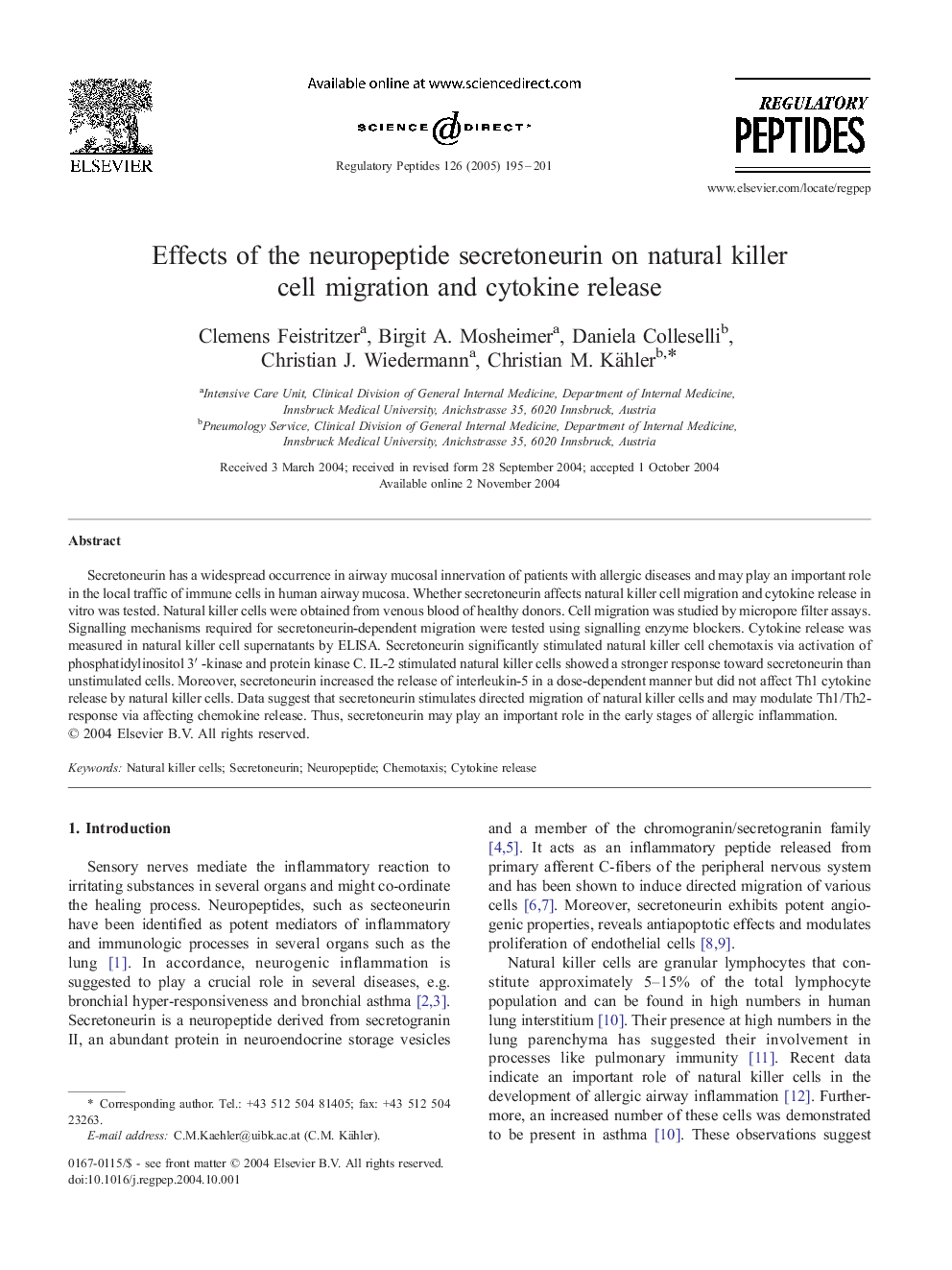| Article ID | Journal | Published Year | Pages | File Type |
|---|---|---|---|---|
| 10845384 | Regulatory Peptides | 2005 | 7 Pages |
Abstract
Secretoneurin has a widespread occurrence in airway mucosal innervation of patients with allergic diseases and may play an important role in the local traffic of immune cells in human airway mucosa. Whether secretoneurin affects natural killer cell migration and cytokine release in vitro was tested. Natural killer cells were obtained from venous blood of healthy donors. Cell migration was studied by micropore filter assays. Signalling mechanisms required for secretoneurin-dependent migration were tested using signalling enzyme blockers. Cytokine release was measured in natural killer cell supernatants by ELISA. Secretoneurin significantly stimulated natural killer cell chemotaxis via activation of phosphatidylinositol 3â²-kinase and protein kinase C. IL-2 stimulated natural killer cells showed a stronger response toward secretoneurin than unstimulated cells. Moreover, secretoneurin increased the release of interleukin-5 in a dose-dependent manner but did not affect Th1 cytokine release by natural killer cells. Data suggest that secretoneurin stimulates directed migration of natural killer cells and may modulate Th1/Th2-response via affecting chemokine release. Thus, secretoneurin may play an important role in the early stages of allergic inflammation.
Related Topics
Life Sciences
Biochemistry, Genetics and Molecular Biology
Biochemistry
Authors
Clemens Feistritzer, Birgit A. Mosheimer, Daniela Colleselli, Christian J. Wiedermann, Christian M. Kähler,
